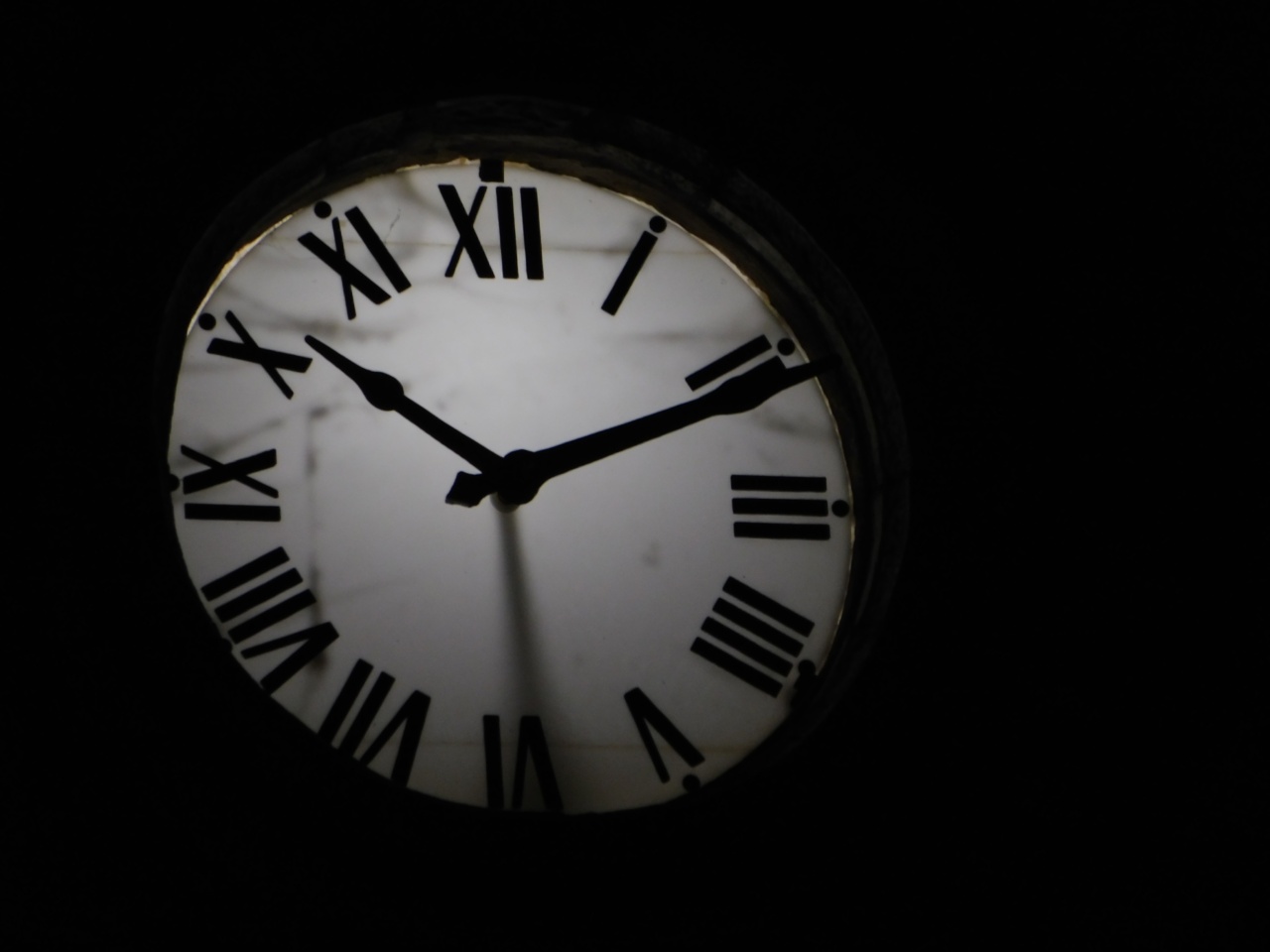The human body is a complex system that operates on various biological rhythms. One of the most important rhythms that governs our daily lives is the internal clock, also known as the circadian rhythm.
This internal clock dictates our sleep patterns, hormone production, and overall bodily functions. When our internal clock is functioning optimally, we experience a sense of balance and well-being. However, when it is disrupted or ticking faster than it should, it can lead to various health issues and affect our quality of life.
The Importance of the Internal Clock
The internal clock, also referred to as the circadian rhythm, is generated by a group of cells in the brain called the suprachiasmatic nucleus (SCN).
This internal clock regulates a wide range of physiological processes, including sleep-wake cycles, hormone production, digestion, body temperature, and even cognitive functions.
Our internal clock is primarily influenced by external cues, such as sunlight and darkness. Exposure to light signals our brains to wake up and stay alert, while darkness triggers the production of melatonin, a hormone that promotes sleep.
This natural rhythm helps us stay in sync with the 24-hour day-night cycle, allowing our bodies to function optimally.
Signs of a Faster Internal Clock
While the internal clock is naturally set to a 24-hour cycle, various factors can disrupt its rhythm and cause it to tick faster than it should. Here are some signs that your internal clock may be off-balance:.
1. Difficulty Falling Asleep
If you find it increasingly challenging to fall asleep at night, even when you are physically tired, it could be a sign that your internal clock is ticking faster than it should.
Your body may still be in an alert state, preventing you from entering a restful sleep.
2. Waking Up Too Early
Another common sign of a faster internal clock is waking up consistently earlier than intended. Despite going to bed at a reasonable time, you may find yourself waking up before sunrise and feeling unable to fall back asleep.
3. Increased Energy Levels in the Evening
Feeling more alert and energetic in the evening, when you should naturally start winding down, is another indication of a faster internal clock. You may find it difficult to relax and prepare your body for sleep during these times.
4. Irregular Meal Patterns
When the internal clock is disrupted, it can also affect your appetite and meal patterns. You may experience irregular hunger cues or a lack of appetite during normal eating times.
5. Mood Swings and Irritability
Changes in the internal clock can disturb the delicate balance of hormones in the body, leading to mood swings and increased irritability.
If you find yourself being more emotionally reactive or experiencing frequent mood shifts, it may be a result of an imbalanced internal clock.
Ways to Slow Down the Internal Clock
If you suspect that your internal clock is ticking faster than it should, there are several methods you can try to restore balance and improve your overall well-being:.
1. Maintain a Consistent Sleep Schedule
Establishing a regular sleep schedule can help regulate your internal clock. Try to go to bed and wake up at the same time every day, even on weekends.
This consistency trains your body to recognize when it is time to sleep and wake up, ultimately slowing down the internal clock.
2. Limit Exposure to Artificial Light at Night
Artificial light, especially from electronic devices, can disrupt your circadian rhythm. Avoid using screens close to bedtime, and dim the lights in your environment to signal your body that it is time to wind down for sleep.
3. Create a Relaxing Bedtime Routine
Engage in calming activities before bedtime to help your body transition into a restful state. This may include taking a warm bath, reading a book, or practicing relaxation techniques such as deep breathing or meditation.
4. Prioritize Sunlight Exposure During the Day
Expose yourself to natural sunlight during the day, especially in the morning hours. Sunlight helps regulate your internal clock and promotes the production of Vitamin D, which is essential for overall health and mood regulation.
5. Avoid Stimulants and Heavy Meals Before Bed
Stimulants like caffeine and nicotine can disrupt the internal clock. Avoid consuming these substances close to bedtime. Additionally, opt for lighter meals in the evening to avoid indigestion and promote a more restful sleep.
6. Establish a Relaxing Sleep Environment
Create a sleep-friendly environment by ensuring your bedroom is dark, quiet, and cool. Use blackout curtains or an eye mask to block out any light, and consider using earplugs or white noise machines to drown out any disruptive sounds.
7. Consider Light Therapy
Light therapy involves using specialized lamps that simulate natural sunlight. It can be beneficial for individuals with disrupted internal clocks, such as those experiencing seasonal affective disorder (SAD) or jet lag.
Consult with a healthcare professional to determine the appropriate duration and intensity of light therapy for your needs.
8. Seek Professional Help for Sleep Disorders
If you consistently struggle with maintaining a healthy sleep-wake schedule or suspect you may have a sleep disorder, it is essential to consult with a healthcare professional.
They can assess your symptoms, conduct tests if required, and provide you with personalized advice and treatment options.
9. Regular Exercise
Engaging in regular physical activity can help regulate your internal clock and promote better sleep. Aim for at least 30 minutes of moderate-intensity exercise most days of the week.
However, avoid exercising too close to bedtime, as it may have a stimulating effect on your body.
10. Practice Stress Management Techniques
Stress can significantly impact your internal clock and overall well-being. Incorporate stress management techniques into your daily routine, such as yoga, meditation, or journaling.
These practices can help you unwind and relax, promoting a healthier internal clock.
Conclusion
Our internal clock plays a crucial role in regulating our sleep-wake cycles and overall bodily functions. When it ticks faster than it should, various signs and symptoms may emerge, indicating an imbalance.
By taking steps to slow down and restore balance to our internal clock, we can improve our well-being, enhance our sleep quality, and optimize our daily functioning.




























